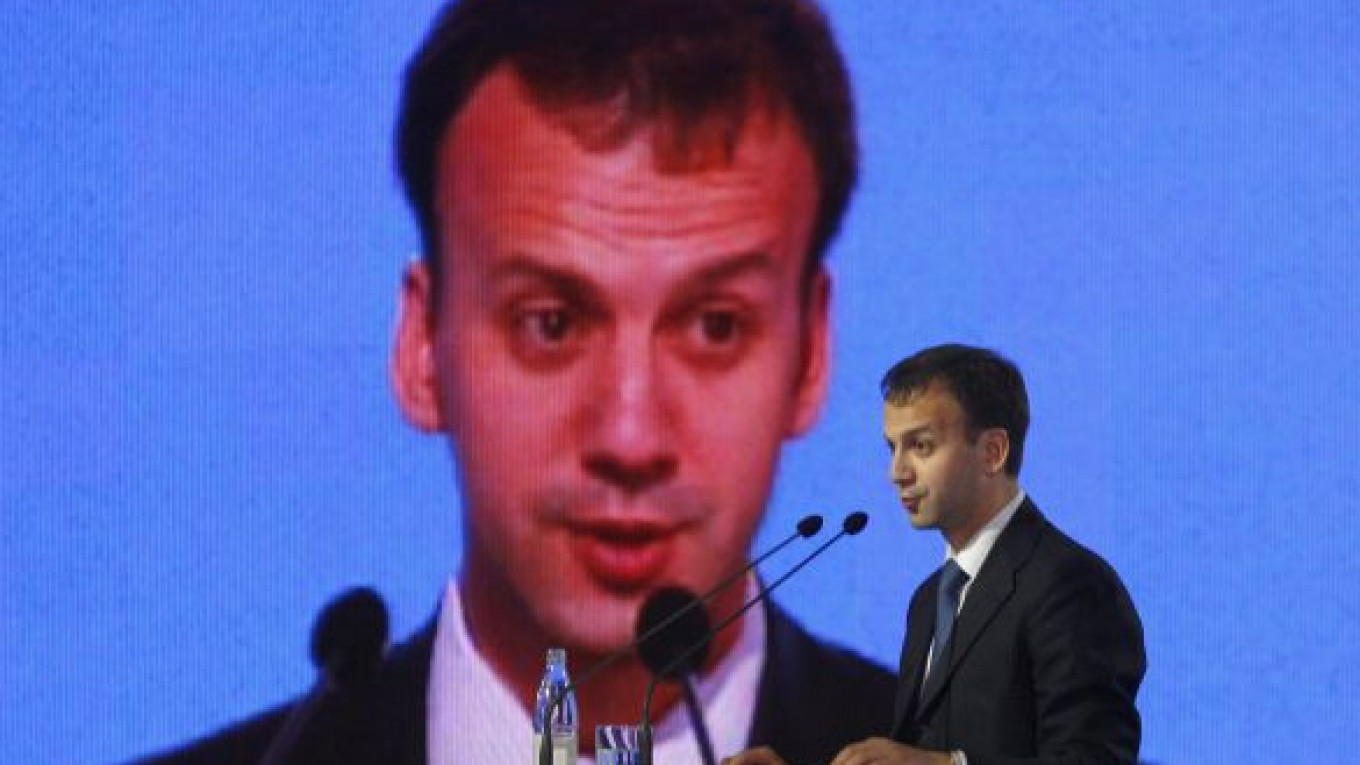President Dmitry Medvedev will seek increased cooperation on monetary policy at a Group of 20 summit later this week, a senior adviser said Monday, after the U.S. Federal Reserve's decision to print more dollars.
Monetary policy is "a question of sovereignty" for most countries, and Russia would not let other states give it orders on Central Bank policy either, Medvedev's economic aide Arkady Dvorkovich told reporters.
But the president will insist that "such actions be taken with preliminary consultations with other members,” he said.
The Fed decided last week to buy $600 billion in debt, which it hopes will help stimulate the economy and fight disinflation. The decision has been criticized by a number of European and Asian countries, including Germany and China.
Outside the United States, the measure has been seen as an attempt to drive down the dollar. Washington has criticized Beijing in particular for maintaining an artificially depressed currency, which it says helps Chinese exporters.
U.S. President Barack Obama rebuffed critics during a trip to India on Monday, saying his country's second big quantitative easing, known as QE2, was “good for the world as a whole” because of the U.S. growth rate it will bring, The Financial Times reported.
Several states have said currency will be the main topic at Thursday's G20 summit in Seoul, South Korea, and likely carry over to a weekend meeting of Asia-Pacific Economic Cooperation members in Japan.
In the short term, the Fed's move may help Russia by bringing added cash, Dvorkovich said. “Unlike in China, our market isn't overheated.”
The G20 will also discuss reforms to international currency organizations, transitioning to new capital standards for commercial banks in line with the Basel Accord, and support for poor countries, he said.
A framework agreement on sustainable economic growth will be on the agenda in Seoul, and G20 countries are supposed to present their economic development forecasts.
"The forecast for selected countries was far more optimistic than the balanced scenario, obtained by putting the individual forecasts together," Dvorkovich said, without elaborating.
Yaroslav Lissovolik, chief economist at Deutsche Bank Russia, said the G20 summit may lead to “a new structure” that would ease cooperation on monetary policy.
“The current institutions are filled with gaps and blind spots," he said. “Dvorkovich is not only speaking from the position of Russia. He's raising a more fundamental issue of better coordination, which is a necessity now.”
Medvedev may meet Obama in Japan, in part to discuss efforts to ratify the New START treaty, Kremlin foreign policy aide Sergei Prikhodko told a separate news conference, Interfax reported.
He could also speak on the sidelines with Japanese Prime Minister Naoto Kan, Prikhodko said. Japan briefly recalled its ambassador from Moscow after Medvedev visited one of the disputed Kuril Islands on Nov. 1.
A Message from The Moscow Times:
Dear readers,
We are facing unprecedented challenges. Russia's Prosecutor General's Office has designated The Moscow Times as an "undesirable" organization, criminalizing our work and putting our staff at risk of prosecution. This follows our earlier unjust labeling as a "foreign agent."
These actions are direct attempts to silence independent journalism in Russia. The authorities claim our work "discredits the decisions of the Russian leadership." We see things differently: we strive to provide accurate, unbiased reporting on Russia.
We, the journalists of The Moscow Times, refuse to be silenced. But to continue our work, we need your help.
Your support, no matter how small, makes a world of difference. If you can, please support us monthly starting from just $2. It's quick to set up, and every contribution makes a significant impact.
By supporting The Moscow Times, you're defending open, independent journalism in the face of repression. Thank you for standing with us.
Remind me later.






